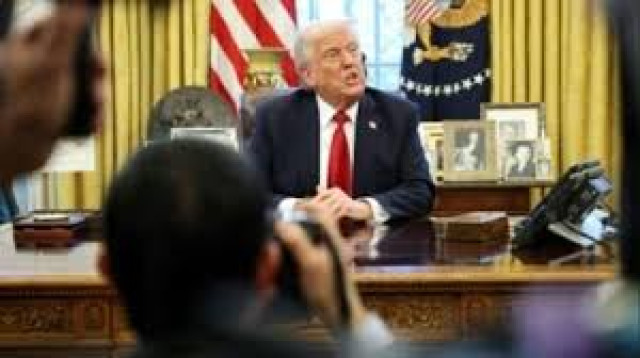WASHINGTON (AP) — The House voted narrowly Thursday to slash $9.4 billion in previously approved federal spending, backing a request from President Donald Trump’s administration.
The measure passed 214–212, targets foreign aid programs and public broadcasting services like NPR and PBS.
The cuts reflect recommendations from the now-defunct Department of Government Efficiency, once led by Elon Musk, and are framed by Republicans as a move to eliminate “wasteful” spending.
Democrats counter that the rescissions will damage U.S. global influence and cause humanitarian setbacks.
“Cruelty is the point,” said House Democratic Leader Hakeem Jeffries of New York.
The administration invoked a rarely used budget tool to freeze allocated funds for 45 days, giving Congress a limited window to act. Without action, the money would remain intact.
House Speaker Mike Johnson praised the move as a victory for conservative budgeting.
“Under President Trump’s leadership, your taxpayer dollars are no longer being wasted,” Johnson said. “Instead, they are being directed toward priorities that truly benefit the American people.”
Because the bill is a rescission measure, it only needs a simple majority in the Senate—bypassing the usual 60-vote threshold required for most spending bills. Senate Majority Leader John Thune said the upper chamber will likely address the bill in July, after considering Trump’s broader tax and immigration package.
What’s Being Cut?
The bill includes 21 rescission proposals:
● $1.1 billion from the Corporation for Public Broadcasting, removing its full budget for the next two years. About two-thirds of this funding supports over 1,500 local public stations—many in rural areas.
● $900 million from global health initiatives, including:
○ $500 million from infectious disease and maternal-child health programs
○ $400 million from global HIV response efforts
● $800 million from emergency aid programs for refugees
● About 45% of cuts affect programs aimed at building economies and democratic institutions in developing nations.
Rep. Chip Roy (R-Texas) dismissed the criticism, saying the targeted programs fund frivolous efforts like climate initiatives and pottery classes. Others cited reports from the defunct Department of Government Efficiency (DOGE), alleging “woke” spending patterns.
“Let’s just reject this now,” Roy said of Democratic concerns.
Pushback and Defections
All Democrats opposed the bill. Four Republicans broke ranks:
● Mark Amodei (Nev.)
● Brian Fitzpatrick (Pa.)
● Nicole Malliotakis (N.Y.)
● Mike Turner (Ohio)
The measure seemed doomed until Reps. Don Bacon (Neb.) and Nick LaLota (N.Y.) flipped their votes following private talks with leadership. Bacon said he received assurances that PBS funding and global HIV initiatives (PEPFAR) would remain protected.
“Because of these reassurances, I voted yes on H.R. 4,” Bacon said.
Democratic Response
Democrats warned of dire consequences for vulnerable populations.
“This bill is good for Russia and China and undertakers,” said Rep. Steve Cohen (D-Tenn.), criticizing the cuts to foreign aid.
“We are already seeing women, children and families left without food, clean water and critical services,” said Oxfam America CEO Abby Maxman.
“Cutting off federal funding to public media will not only damage local stations, it will be disruptive for millions,” added Patricia Harrison, president of the Corporation for Public Broadcasting.




















